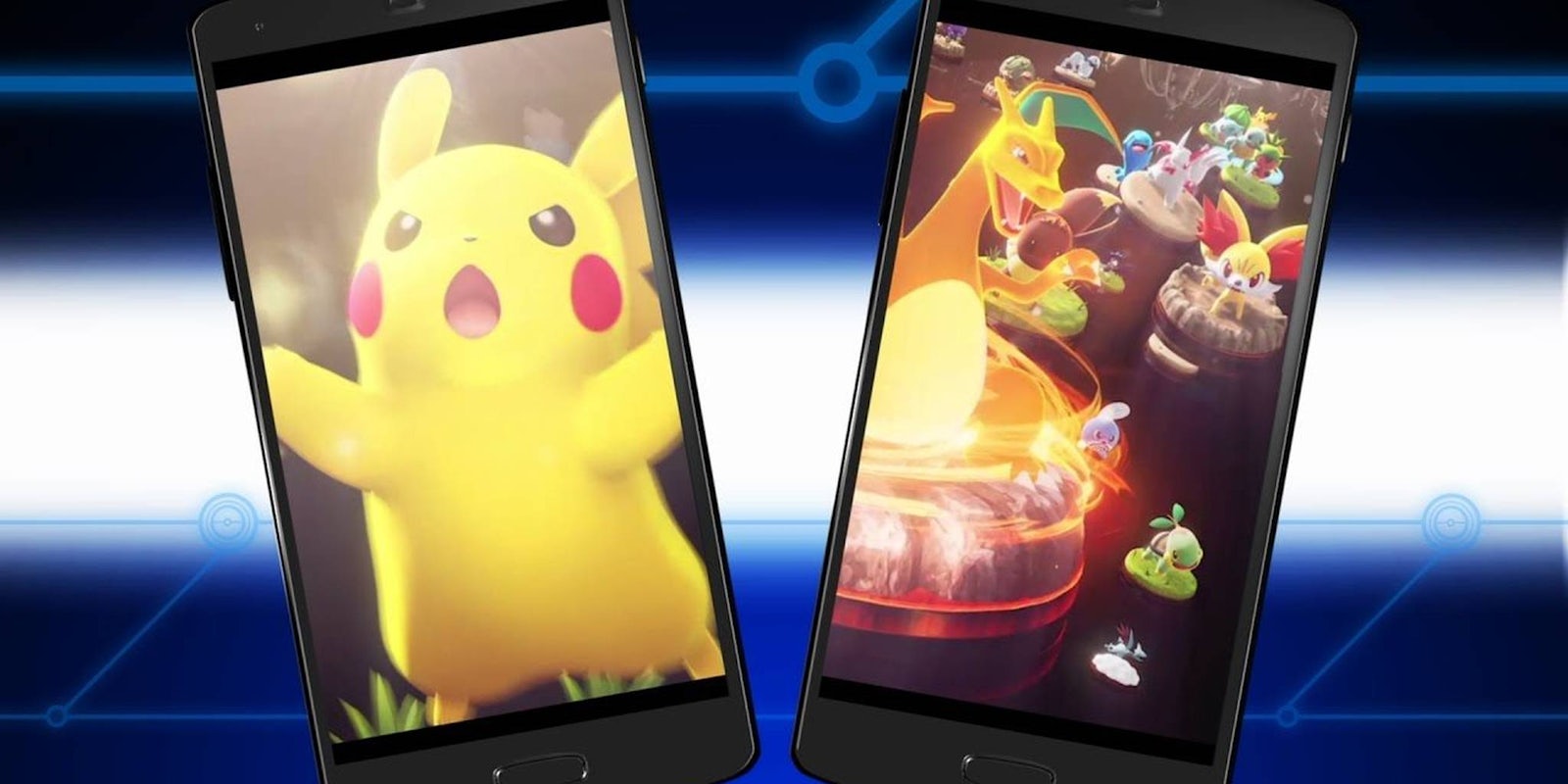Many fans were surprised last week when a new mobile game based in the Pokémon universe appeared, seemingly out of nowhere. Riding on the triumphant success of Pokémon Go in 2016, which mounted an aggressive marketing campaign, Pokémon Duel was made available to players on iOS and Android devices worldwide with hardly any fanfare.
Released last April in Japan as Pokémon Comaster, the game is similar in execution to many other mobile titles, including the popular Clash Royale. In fact, the mechanics and fundamental rules of individual matches hardly resemble the standard traditions of Pokémon. While the series has never shied away from distinct spin-offs like the Pokémon Ranger and Mystery Dungeon series, these twists always maintained the adventurous spirit of the main series.
Pokémon Duel is sometimes unmistakable from other mobile free-to-play titles, featuring many of the same premiums that encourage frequent log-ins and progression to get the most out of the experience. However, there is a solid single-player mode that introduces the main concepts of the virtual board game and the world these characters inhabit. You’re brought into this new spin on the Pokémon formula in a traditional manner, with a friendly rival character introducing you to your team and the game’s mechanics.
Rather than focusing on head-to-head battles, Duel opts for a figure-based strategy competition. Each player has six figures on their bench, and can choose to move one around the board each turn. Different Pokémon can move a fixed number of spaces at once, and possess certain attacks and abilities unique to the type of monster. Bringing a creature into battle for the first time will limit the spaces it can move, as your objective is to reach the opponent’s goal while preventing them from taking yours.
The simultaneous attack and defend style of Pokémon Duel‘s gameplay can be exciting, but is often marred by the random nature of battles. When two figures on opposing teams are adjacent to each other, the battle will initiate. Surrounding an advancing figure with two Pokémon will result in an instant win, however. Battles make use of each monster’s attacks, but players have no input on the strategy they want to use against different characters.
Instead, the spinner attached to each statue will decide the action of each character. Damaging moves, status-inflicting abilities, and misses and dodges are represented on the spinner. Each spin is completely random, but you can change the size of certain moves outside of battle to influence the outcome a bit more. Taking away this critical part of Pokémon‘s gameplay turns the player into a passive observer for most of Pokémon Duel, and it leads to a lot of frustrating situations.
Likewise, the ways in which characters can move around the board are limited to a very small number of lanes, meaning games will start feeling repetitive very quickly. Whether you’re playing against a computer enemy or another player online, it won’t be hard to see their next move coming. You can play special cards that let you swap active Pokémon or increase damage to pull of surprises, but the simplicity of potential strategies remain disappointing.
Outside of matches, you can customize your team and pick up new ways to power-up your Pokémon. Creatures up through X and Y are represented in the game, through additional booster packs that can be purchased with in-game currency or for extra microtransactions. Building a team of your favorite monsters is exciting, as is taking them through the surprisingly fleshed out single-player campaign.
But Pokémon Duel ultimately fails to provide an enticingly original gameplay loop that should encourage players to log in daily, reap new rewards, and climb the leaderboards. Through cluttered menus, unresponsive touch controls, and frequent network checks, Pokémon Duel makes the argument itself that there are much better free-to-play options on the app store at the moment.





